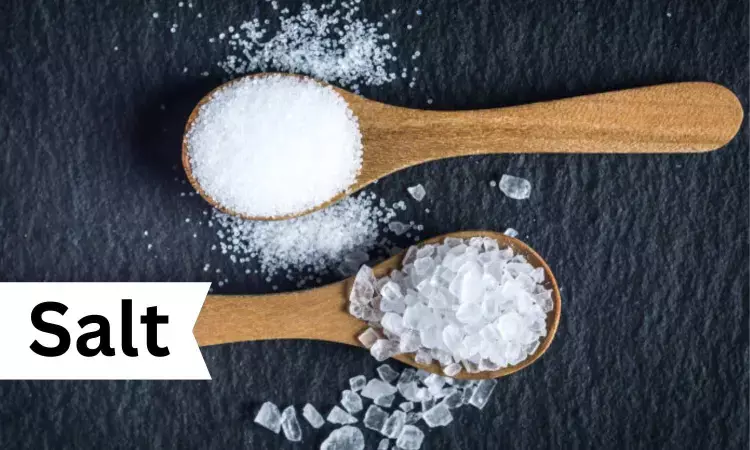- Home
- Medical news & Guidelines
- Anesthesiology
- Cardiology and CTVS
- Critical Care
- Dentistry
- Dermatology
- Diabetes and Endocrinology
- ENT
- Gastroenterology
- Medicine
- Nephrology
- Neurology
- Obstretics-Gynaecology
- Oncology
- Ophthalmology
- Orthopaedics
- Pediatrics-Neonatology
- Psychiatry
- Pulmonology
- Radiology
- Surgery
- Urology
- Laboratory Medicine
- Diet
- Nursing
- Paramedical
- Physiotherapy
- Health news
- Fact Check
- Bone Health Fact Check
- Brain Health Fact Check
- Cancer Related Fact Check
- Child Care Fact Check
- Dental and oral health fact check
- Diabetes and metabolic health fact check
- Diet and Nutrition Fact Check
- Eye and ENT Care Fact Check
- Fitness fact check
- Gut health fact check
- Heart health fact check
- Kidney health fact check
- Medical education fact check
- Men's health fact check
- Respiratory fact check
- Skin and hair care fact check
- Vaccine and Immunization fact check
- Women's health fact check
- AYUSH
- State News
- Andaman and Nicobar Islands
- Andhra Pradesh
- Arunachal Pradesh
- Assam
- Bihar
- Chandigarh
- Chattisgarh
- Dadra and Nagar Haveli
- Daman and Diu
- Delhi
- Goa
- Gujarat
- Haryana
- Himachal Pradesh
- Jammu & Kashmir
- Jharkhand
- Karnataka
- Kerala
- Ladakh
- Lakshadweep
- Madhya Pradesh
- Maharashtra
- Manipur
- Meghalaya
- Mizoram
- Nagaland
- Odisha
- Puducherry
- Punjab
- Rajasthan
- Sikkim
- Tamil Nadu
- Telangana
- Tripura
- Uttar Pradesh
- Uttrakhand
- West Bengal
- Medical Education
- Industry
Reducing dietary salt intake could help prevent CKD in diabetes patients by significant BP lowering

USA: Reducing dietary salt intake to the recommended levels of 5 g/day is beneficial for diabetes patients by lowering BP by similar amounts to a single blood pressure (BP) medication, according to a Cochrane review.
The systematic review showed a significant lowering in systolic (SBP) and diastolic blood pressure (DBP) in diabetes patients with normal GFR during short periods of salt restriction, comparable to that obtained with single-drug therapy for hypertension. "These data support the international recommendations that patients with diabetes with or without hypertension or kidney disease should lower that salt intake to less than five g/day," the researchers wrote.
There is strong evidence that we all consume too much salt, which increases the risk of high BP. This is of particular significance in patients with diabetes as diabetes raises the risk of kidney failure, heart attack, and stroke, and elevated BP will further exacerbate these risks. Reducing salt intake could help with BP reduction and thus reduce heart attack risk and worsening kidney function.
In an update of a review first published in 2010, the authors aimed to evaluate the effect of altered salt intake on blood pressure and cardiovascular disease (CVD) markers and chronic kidney disease in diabetes patients.
For this purpose, the authors searched for randomised controlled trials (RCTs), which compared low and high salt intake levels in diabetes patients from the Cochrane Kidney and Transplant Register of Studies. Studies with a difference between sodium intake (low and high) of at least 34 mmol/day were included.
They calculated the average level of systolic BP reduction (the top number) and diastolic BP (the bottom number) in people with diabetes when they received a high-salt diet and when they received a low-salt diet. They also looked at whether the amount of protein in the urine (kidney damage marker) was reduced in diabetes patients receiving a low salt diet.
The study led to the following findings:
- Thirteen studies, including 313 people with type 1 or 2 diabetes, were included.
- Salt intake reduction by an average of 5 g/day lowered blood pressure, with diastolic BP reduced by 3 mm of mercury (Hg) and systolic BP reduced by 7mm Hg.
- Four of the eight studies reported this outcome, and the amount of protein in the urine was reduced.
- Only one study reported side effects with low blood pressure when standing up with low salt diets shown in a quarter of the participants.
"Our findings support the international recommendations that diabetes patients with or without hypertension or the presence of kidney disease should lower salt intake to less than five g/day (2 g sodium)," the researchers conclude.
Reference:
Hodson EM, Cooper TE. Altered dietary salt intake for preventing diabetic kidney disease and its progression. Cochrane Database of Systematic Reviews 2023, Issue 1. Art. No.: CD006763. DOI: 10.1002/14651858.CD006763.pub3.
Dr Kamal Kant Kohli-MBBS, DTCD- a chest specialist with more than 30 years of practice and a flair for writing clinical articles, Dr Kamal Kant Kohli joined Medical Dialogues as a Chief Editor of Medical News. Besides writing articles, as an editor, he proofreads and verifies all the medical content published on Medical Dialogues including those coming from journals, studies,medical conferences,guidelines etc. Email: drkohli@medicaldialogues.in. Contact no. 011-43720751


